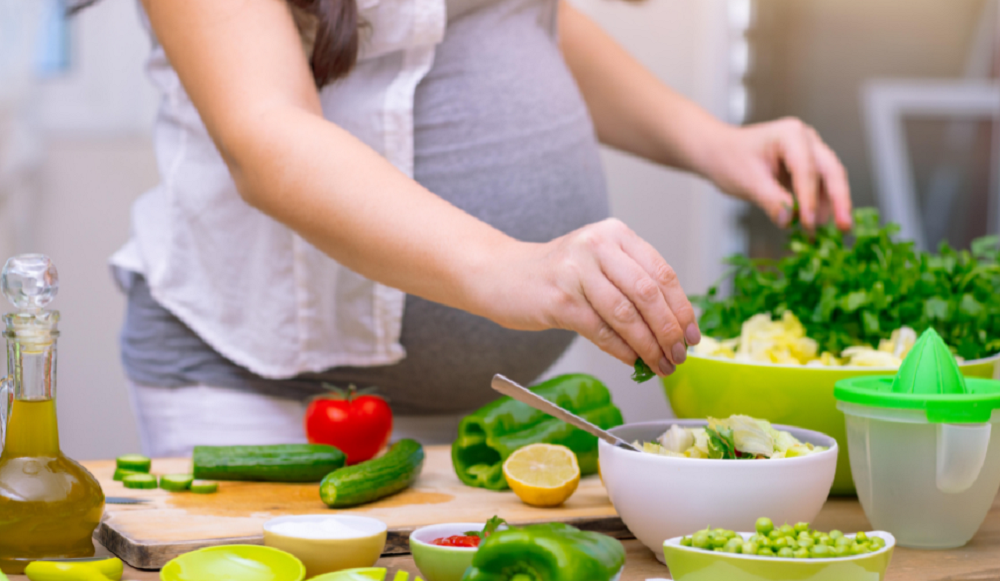Welcoming a new life into the world is a life-altering experience. For new mothers, however, the postpartum period can be both rewarding and overwhelming. This phase, often referred to as the “fourth trimester,” is not just about adjusting to life with a newborn, it’s also about rebuilding physical and mental wellness after pregnancy and childbirth.
Postpartum health is an essential yet often overlooked aspect of motherhood. Understanding the challenges, prioritizing self-care, and harnessing holistic strategies can help new mothers recover, rebuild, and thrive. This guide will walk you through the key elements of postpartum recovery, offering actionable tips and insights to support new moms on their unique journeys.
Table of Contents
ToggleUnderstanding Physical Changes in Postpartum Bodies
Pregnancy and childbirth significantly alter a woman’s body. From hormonal shifts to physical strain, postpartum health deserves attention and care to heal and rebuild.
What Happens to a Woman’s Body Postpartum?
- Uterine Changes: After childbirth, the uterus gradually contracts back to its pre-pregnancy size. This process, known as involution, can take 6-8 weeks.
- Hormonal Fluctuations: Levels of estrogen and progesterone drop significantly post-birth, often contributing to mood swings and physical changes.
- Pelvic Floor Strain: Childbirth can weaken pelvic floor muscles, leading to issues like incontinence or discomfort.
- C-section Recovery (if applicable): Mothers who deliver via cesarean face surgical recovery, requiring additional time and care.
Supporting Physical Recovery
- Rest When Possible – Sleep is crucial for healing. Take naps when your baby naps, and don’t hesitate to accept help.
- Hydration – Keep a water bottle handy. Staying hydrated helps boost energy, especially if you’re breastfeeding.
- Gentle Movement – Start with simple activities like walking. Consult your doctor before resuming more intense workouts.
- Pelvic Floor Exercises – Incorporate Kegel exercises into your routine to strengthen these critical muscles.
Postpartum health recovery is a process, not a race. Listen to your body and give it the time it needs to recover.
Mental Health Challenges in the Postpartum Period
While physical recovery is well documented, the mental toll postpartum mothers face is often underestimated. Mental postpartum health is as critical as physical health and deserves equal attention.
Common Postpartum Mental Health Challenges
- Baby Blues – Many women experience mood swings, irritability, or bouts of sadness in the first two weeks postpartum due to hormonal changes.
- Postpartum Depression (PPD) – Affecting 1 in 7 women, PPD can last for months, with symptoms like severe sadness, anxiety, or withdrawal.
- Postpartum Anxiety and OCD – Persistent worry, intrusive thoughts, or compulsive behaviors often go unnoticed but affect many new mothers.
Strategies to Maintain Mental Wellness
- Talk About It – Share your feelings with a trusted friend, family member, or therapist. You are not alone.
- Join Support Groups – Connecting with other moms can be incredibly validating and uplifting.
- Ask for Help – Whether it’s with house chores or caring for the baby, don’t hesitate to ask loved ones for support.
- Practice Mindfulness – Techniques like meditation or deep breathing can help alleviate stress and anxiety.
If symptoms persist or worsen, seek professional guidance. Postpartum Mental Health is an essential part of your overall well-being.
The Role of Nutrition and Exercise in Postpartum Recovery
For new mothers, nutrition and exercise are core pillars of recovery. They not only aid physical healing but also elevate energy levels and improve mood.
Nutrition Tips for Postpartum Health
- Focus on Nutrient-Dense Foods – Incorporate protein, iron, and calcium-rich foods to rebuild energy and strength.
- Eat Regularly – Skipping meals lowers energy levels. Opt for quick, healthy snacks like nuts or fresh fruit when time is tight.
- Support Lactation – Incorporate lactation-friendly foods like oatmeal, almonds, and leafy greens if you’re breastfeeding.
- Avoid Crash Dieting – Your body needs fuel for recovery. Be patient with weight loss and prioritize health over aesthetics.
Safe Ways to Reintroduce Exercise
- Start Small – Begin with light stretching or walking a few minutes daily.
- Strengthen Core Muscles – Gentle yoga or postnatal Pilates can help rebuild core strength.
- Wait for Clearance – Consult your doctor before starting rigorous physical activities, especially after a C-section.
Movement, no matter how gentle, can also reduce stress and release endorphins, which can be great for both body and mind. This supports positive postpartum health.
Tips for Creating a Supportive Postpartum Environment
Recovering physically and mentally is challenging without the proper support. Building a nurturing postpartum health and environment can make all the difference.
Tips for a Supportive Home Setup
- Encourage Open Communication – Discuss your needs and feelings with your partner or family members.
- Prepare Meals in Advance – Consider prepping freezer-friendly meals ahead of time or opting for meal delivery services.
- Create a Comfortable Space for Nursing – Set up a quiet, cozy corner for feeding and bonding with your baby.
- Accept Help Graciously – Whether it’s babysitting siblings or folding laundry, even minor help can lighten your load.
Lean on Your Community
- Social Media Groups: Many online communities focus on motherhood and postpartum support.
- Local Mom Groups: Look for in-person gatherings to make real-world connections with other moms.
Remember, asking for help isn’t a sign of failure. It’s a sign of strength.
The Importance of Holistic Postpartum Care
Postpartum health is a multifaceted experience as it combines physical recovery, mental wellness, proper nutrition, movement, and support from loved ones. This holistic approach ensures that mothers not only recover but also thrive in their new role.
If you’re going through the postpartum phase, remember to approach recovery with compassion and patience. Renewal takes time, but with the right tools and support, postpartum health recovery is absolutely possible.
For additional insights, resources, and expert guidance, consider connecting with a postpartum wellness coach or joining a local parenting group. Every small step you take toward well-being sets the foundation for a healthier, happier life for you and your family.



7 thoughts on “Postpartum Health: How To Rebuild Good Physical and Mental Wellness”
Your article helped me a lot, is there any more related content? Thanks!
Your point of view caught my eye and was very interesting. Thanks. I have a question for you.
Can you be more specific about the content of your article? After reading it, I still have some doubts. Hope you can help me.
Can you be more specific about the content of your article? After reading it, I still have some doubts. Hope you can help me.
Your point of view caught my eye and was very interesting. Thanks. I have a question for you.
Thank you, your article surprised me, there is such an excellent point of view. Thank you for sharing, I learned a lot.
I don’t think the title of your article matches the content lol. Just kidding, mainly because I had some doubts after reading the article.